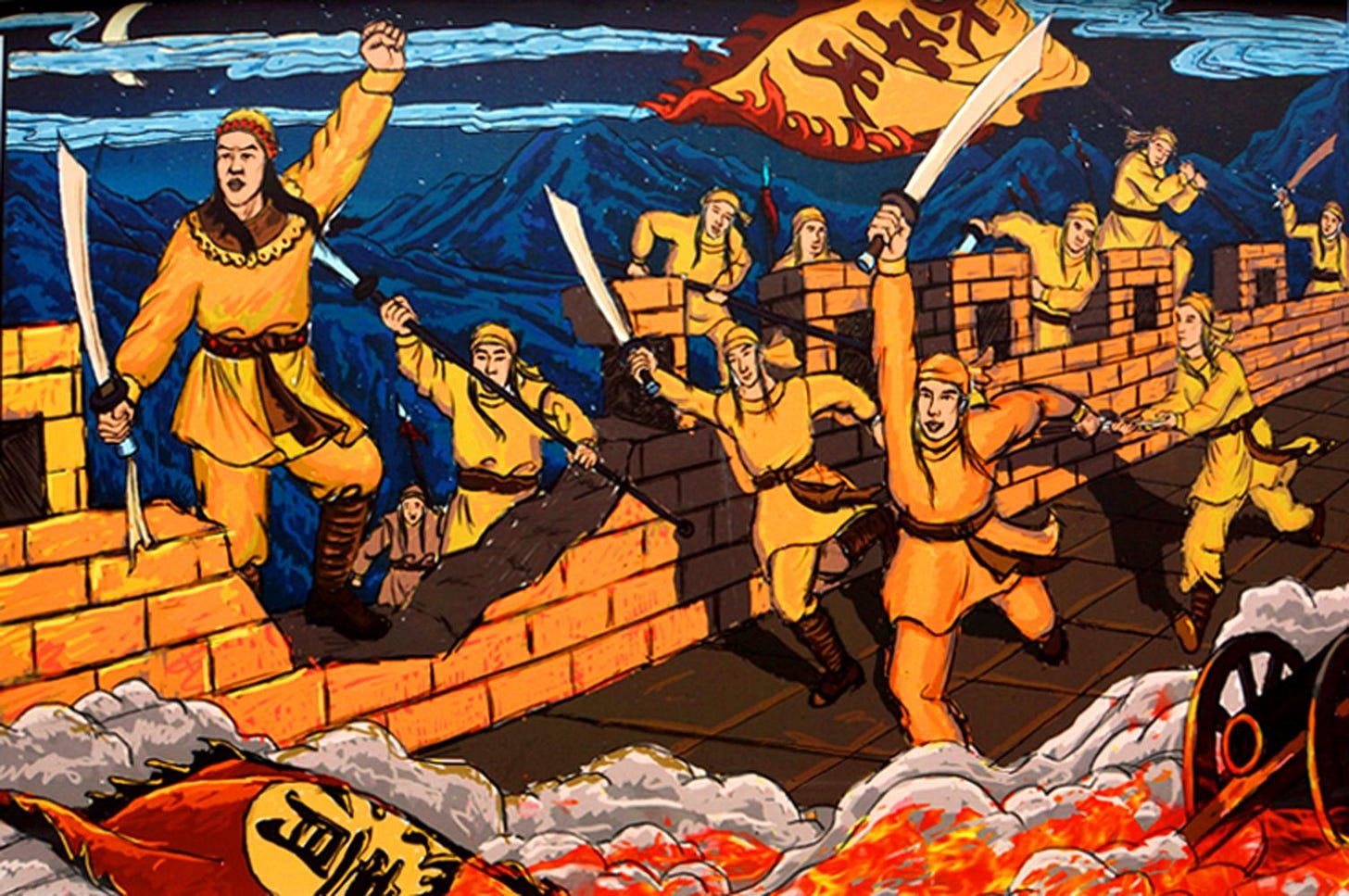Taiping Heavenly Kingdom
Burned books; 20 million died -1851 to 1864
The Taiping Heavenly Kingdom, led by Hong Xiuquan, was a rebel state in China and a Chinese Christian theocratic absolute monarchy from 1851 to 1864, supporting the overthrow of the Qing dynasty. The unsuccessful war waged against the Qing is known as the Taiping Rebellion. It was the bloodiest civil war in world history.1
Its capital was at Tianjing (present-day Nanjing).
From 1851 to 1866 China writhed in a civil war without parallel in history either for loss of life and sheer destructiveness or for social and political consequence. Millions died as vast armies surged back and forth across nineteen provinces. The Taipings fought tenaciously to overthrow the Qing dynasty. They sought to replace Confucianism, Buddhism and Chinese folk religion with the Taiping's version of Christianity which held that the Taiping leader, Hong Xiuquan, was the younger brother of Jesus Christ.2
Following the suppression of the Taiping Rebellion, the victorious forces of the Qing Dynasty engaged in their own extensive destruction of books and records. It is thought that only a tenth of Taiping-published records survive to this day, as they were mostly destroyed by the Qing in an attempt to rewrite the history of the conflict.3
Chairman Mao Zedong, claimed the 1850-64 Taiping Rebellion as an early communist revolution. The Taiping Kingdom History Museum dedicated to artifacts from the Taiping Rebellion (1851-1864) is located in Nanjing.4
Spence, Jonathan D. God’s Chinese Son : the Taiping Heavenly Kingdom of Hong Xiuquan. 1st ed. New York: W.W. Norton, 1996.
Suddard, Adrienne. “The Jen Yu-Wen Collection on the Taiping Revolutionary Movement.” The Yale University Library Gazette 49, no. 3 (1975): 293–96. Jen Yu-wen Papers (MS 1924). Manuscripts and Archives, Yale University Library.
Johnson, Stephen M. “Taiping Heavenly Kingdom History Museum, Nanjing, China.(Hallowed Ground).” Military History (Herndon, Va.) 34, no. 1 (2017): 76.




I read Spence's book a few years ago. It's a fascinating account of a terrifying and somewhat inexplicable period in Chinese history. Spence sums it up this way: "Some intersection of Hong’s own mind and the pulse of the times led him to a literal understanding of elements of this newly encountered religion, so that the Christian texts he read convinced him that he was the younger brother of Jesus, imbued by his father God with a special destiny to rid China of the conquering Manchu demon race, and to lead his chosen people to their own Earthly Paradise."
Astounding that this war is so little known in America. Thanks for highlighting it.